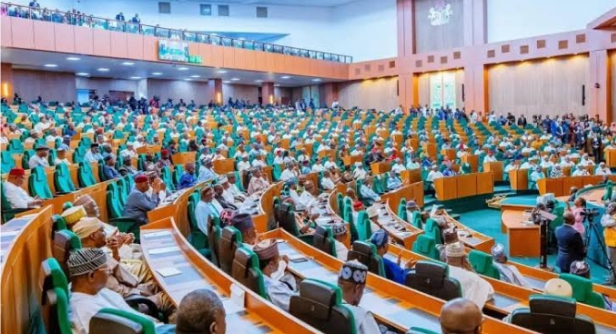The House of Representatives has commenced investigation into the alleged failure to repatriate Nigeria’s crude oil export proceeds estimated at more than $850 billion between 1996 and 2014.
Chairman of the House Ad-Hoc Committee on Pre-Shipment Inspection of Exports and Non-Repatriation of Crude Oil Proceeds, Hon. ‘Seyi Sowunmi, disclosed this on Wednesday during the Committee’s inaugural press briefing at the National Assembly on Wednesday, in Abuja.
According to him, credible reports have indicated large-scale violations of the Pre-shipment Inspection of Exports Act, with operators in the petroleum sector allegedly withholding between 40 and 45 per cent of Nigeria’s oil export earnings, in contravention of the law mandating full repatriation of proceeds within 90 days for oil exports and 180 days for non-oil exports.
He lamented a “disturbing mismatch” in export earnings data provided by government institutions such as the Central Bank of Nigeria (CBN), the Department of Petroleum Resources (now NUPRC), the Nigerian National Petroleum Corporation (NNPC), and the National Bureau of Statistics (NBS), as well as notable inconsistencies between Nigeria’s records and figures released by international organisations like OPEC.
He further disclosed that similar irregularities have been detected in the non-oil sector, particularly in the export of solid minerals and other commodities, where compliance with repatriation rules remains extremely low.
According to Sowunmi, the Pre-shipment Inspection of Exports Act (CAP P26, Laws of the Federation, 2004) established the Nigerian Export Supervision Scheme (NESS) to curb capital flight, ensure accurate valuation of exports, and safeguard the nation’s foreign exchange earnings. Prior to the scheme, he said, Nigeria suffered severe financial losses from under-valuation, delayed invoicing, price manipulation, and illegal swap deals.
He explained that the Committee will undertake a forensic review to determine the exact value of unrepatriated export proceeds from both oil and non-oil sectors since 1996, identify the causes of data discrepancies among agencies, and audit the administration of the NESS fund.
“This Committee will rely strictly on verifiable documents and empirical data. Our approach will be transparent, evidence-based, and entirely focused on results,” Sowunmi stated. “Our ultimate goal is simple, every dollar earned from Nigeria’s exports must be fully accounted for and returned to the Federation Account.”
He emphasized that the House, under the leadership of Speaker Rt. Hon. Tajudeen Abbas, remains committed to President Bola Tinubu’s Renewed Hope Agenda, particularly efforts to close fiscal leakages and recover lost revenues for national development.
He added that the Committee would leverage existing whistleblowing frameworks, pledging anonymity and possible financial incentives for individuals who provide credible intelligence.
“We will use established whistleblowing mechanisms to encourage transparency. Industry players, regulators, bankers, and citizens with useful information are encouraged to come forward, confidentiality and potential rewards are assured,” he noted.
He implored stakeholders to cooperate fully with the inquiry, stressing that the exercise would be a “whole-of-system” investigation.
“Operators must provide shipment-to-receipt documentation; regulators must reconcile production, certification, and FX returns; and banks must supply transaction-level details of repatriation timelines. Where violations are confirmed, both civil and criminal actions will be pursued,” he warned.
The lawmaker emphasized that the Committee’s mission is purely patriotic and devoid of political motives, saying it is designed to protect Nigeria’s economic sovereignty.
“This is not about politics. It’s about accountability and financial recovery. Our success will not be measured by headlines but by tangible funds returned to the Federation Account,” he said.
Sowunmi acknowledged the critical role of the media in the process, urging journalists to ensure responsible, fact-based coverage.
“The media are key partners in this national assignment. We encourage factual, data-backed reporting and caution against speculative figures. The Committee will release verified information and make non-sensitive documents public when necessary,” he said.

